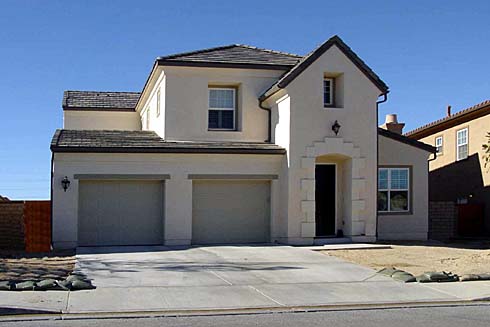ADJUSTED COST BASIS
Understanding Adjusted Cost Basis in Real Estate
When it comes to real estate investment, understanding the concept of adjusted cost basis is crucial. The adjusted cost basis is used to calculate the capital gain or loss on an asset when it is sold. In real estate, this concept becomes particularly important due to the substantial investment involved in property transactions. Let's delve into the details of adjusted cost basis in real estate to gain a better understanding of its significance.
What is Adjusted Cost Basis?
The adjusted cost basis of a property is essentially the original cost of the property, plus any additional costs incurred to purchase and improve it, and minus any deductions taken for depreciation or other factors. It is a crucial factor in determining the capital gain or loss when the property is sold.
Components of Adjusted Cost Basis
Original Purchase Price:
This is the initial cost of acquiring the property.
Purchase Expenses:
Additional costs such as legal fees, title insurance, and survey fees are included in the adjusted cost basis.
Capital Improvements:
Costs incurred for improvements that extend the useful life of the property, such as remodeling, adding an extension, or significant repairs.
Depreciation:
If the property has been used for business or rental purposes, depreciation deductions must be accounted for in the adjusted cost basis.
Importance of Adjusted Cost Basis in Real Estate
Importance of Adjusted Cost Basis in Real Estate
Understanding the adjusted cost basis is vital for real estate investors and property owners for several reasons:
Capital Gains Tax:
When the property is sold, the capital gains tax is calculated based on the difference between the adjusted cost basis and the sale price. A thorough understanding of adjusted cost basis can help in minimizing tax liabilities.
Accurate Financial Reporting:
For property owners, having an accurate adjusted cost basis is essential for financial reporting, as it impacts the calculation of depreciation and capital gains.
Maximizing Deductions:
By keeping track of all the expenses that contribute to the adjusted cost basis, property owners can maximize their deductions and minimize their tax burden.
Calculating Adjusted Cost Basis
Calculating the adjusted cost basis involves adding the original purchase price and all the qualifying expenses and improvements, and then subtracting any allowable deductions such as depreciation. It's important to maintain detailed records of all expenses related to the property to ensure an accurate calculation of the adjusted cost basis.
Conclusion
In the realm of real estate investment, understanding the concept of adjusted cost basis is paramount. It not only impacts the tax implications of property transactions but also plays a crucial role in financial reporting and maximizing deductions. As such, property owners and investors should maintain meticulous records of all costs associated with their properties to ensure an accurate calculation of adjusted cost basis, ultimately leading to informed and strategic decision-making in real estate transactions.
MORE REAL ESTATE TERMS
A, B, C, D, E, F, G, H, I, J, K, L, M, N, O, P, Q, R, S, T, U, V, W, X, Y, Z
Featured New Home

Featured Mortgage Brokers
- AMERICAN MIDWEST MTG CORP, CLEVELAND, OH
6363 YORK RD STE 300
CLEVELAND, OH 44130 - RESIDENTIAL HOME FUNDING CORPORATION, BLUE BELL, PA
1787 SENTRY PKWY W BLDG 18-130
BLUE BELL, PA 19422 - FIRST PREFERENCE MTG CORP, BOWIE, MD
1525 POINTER RIDGE PL
BOWIE, MD 20716 - Intercap Lending, mortgage broker in Albuquerque, NM
5600 Wyoming Blvd NE Ste 20
Albuquerque, NM 87109 - CASTLE & COOKE MORTGAGE LLC, GREENWOOD VILLAGE, CO
7400 E ORCHARD RD # 2900N
GREENWOOD VILLAGE, CO 80111